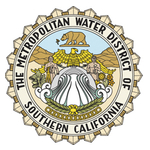Metropolitan Issues Statement on Release of State’s Draft Environmental Impact Report for the Delta Conveyance Project
LOS ANGELES–(BUSINESS WIRE)–Adel Hagekhalil, general manager of the Metropolitan Water District of Southern California and Gloria D. Gray, chairwoman of Metropolitan’s Board of Directors, issue the following statement on the California Department of Water Resources’ release of the Draft Environmental Impact Report for the Delta Conveyance Project:
General Manager Hagekhalil:
“With our One Water agenda, we are trying to shift our reliance on imported water as quickly as possible with new local supplies and greater local conservation. However, there is an important role for water from Northern California in our future, but the role will be different than the past given our climate realities. The more we can advance local solutions, the better we can manage the uncertainties in Northern California.
“Climate change continues to threaten every water source across the West and produce volatile runoff conditions, from extreme droughts to floods. We have a responsibility to adapt to this change by capturing and storing excess water to protect our communities and the environment and to provide the ability to beneficially use that stored water when conditions are dry. The purpose of the proposed Delta Conveyance Project is to modernize the state water system and provide benefits for our entire state by addressing the water reliability issues in the Sacramento-San Joaquin Delta as part of a holistic response to climate change and seismic risks.
“As we continue to call for increased water savings across Southern California and accelerate the development of local water supplies, the Delta Conveyance Project would provide operational flexibility to safely capture Sierra stormwater when available and mitigate seismic and flood risks. In so doing, we must continue to meet water quality and environmental requirements in the Delta.
“Now is a learning moment to review this proposal, and we look forward to dialogue and collaboration with many communities and advocates in the months ahead.”
Chairwoman Gray:
“This new era of climate change has put us on a path to look for bold solutions, consider innovative approaches, and harness collaborative efforts to address our water needs in the future.
“Today’s release of the Draft Environmental Impact Report for the proposed Delta Conveyance Project represents an important step to advance these efforts and the needed dialogue that can safeguard a vital source of water for millions of Californians.
“As we move forward, it will be important to connect with tribes, environmental groups, business and labor organizations, as well as other stakeholders to get the critical feedback we need to address our water supply challenges. It will require all of us working together to not only modernize the conveyance of supplies from Northern California, but also develop more local supplies, storage and conservation to ensure we are successful in preparing for future droughts and climate change.”
The Metropolitan Water District of Southern California is a state-established cooperative that, along with its 26 cities and retail suppliers, provides water for 19 million people in six counties. The district imports water from the Colorado River and Northern California to supplement local supplies, and helps its members to develop increased water conservation, recycling, storage and other resource-management programs.
Contacts
Maritza Fairfield, (213) 217-6853; (909) 816-7722, mobile; mfairfield@mwdh2o.com
Bob Muir, (213) 217-6930; (213) 324-5213, mobile; rmuir@mwdh2o.com



